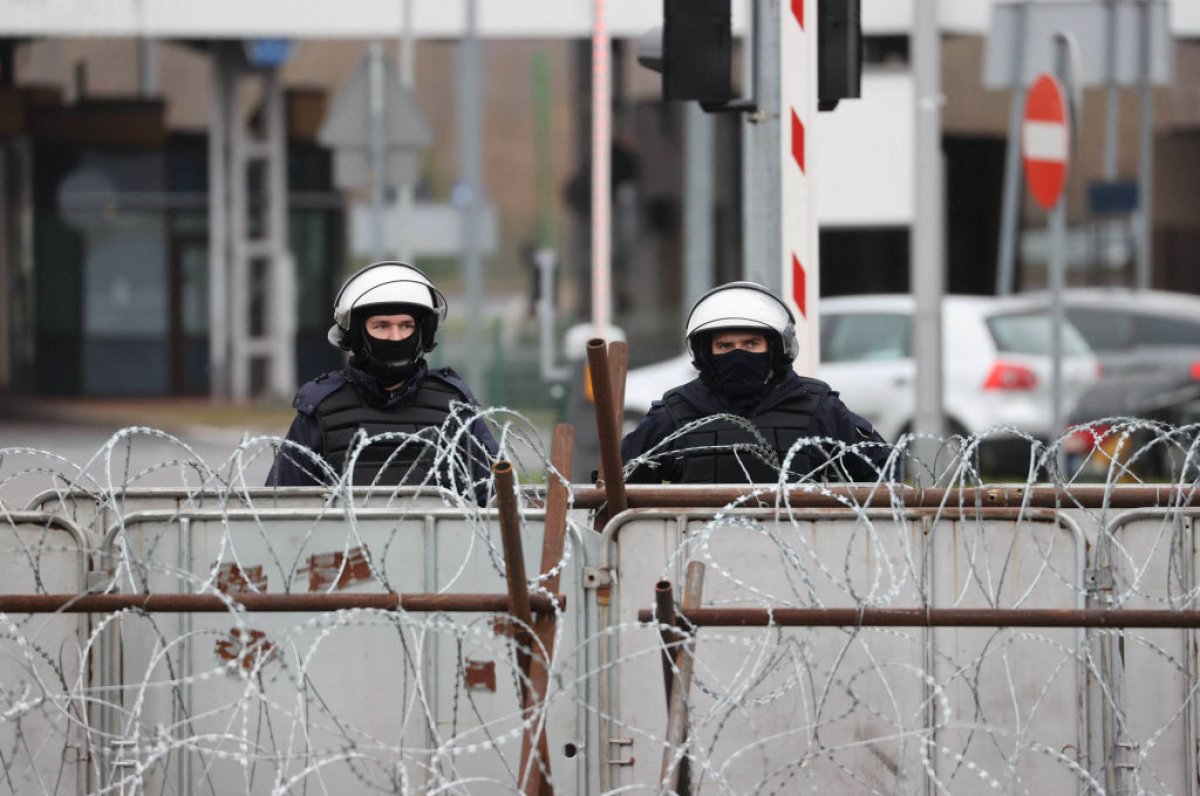The troubling scene along Poland's border with Belarus turned the problem of illegal migrants into political ammunition. It changed attitudes with likely long-term implications for immigration to Europe.
Immigration has become an ever-growing, impassioned issue that divides Europeans. Broadly speaking, the Establishment (what I call the 6Ps: the police, politicians, press, priests, professors and prosecutors) welcome immigration, legal or not, as a source of vitality for an increasingly aging continent, an engine of multicultural diversity and a way for former imperialists to assuage their consciences. In contrast, a growing body of dissidents sees immigration as a source of crime and disease, a challenge to traditions and a civilizational threat.
This debate peaked in 2015-16, when Angela Merkel, the powerful chancellor of Germany, unilaterally opened her country's borders to migrants, dragging much of Europe with her. As illegals became legals, the split in attitudes among Europeans became more intense, with a Willkommenskultur—or welcoming culture—emerging in Germany even as fences went up around Hungary.
And in mid-2021, the dictator of Belarus, Aleksandr Lukashenko, perhaps with Turkish assistance, came up with a clever idea. To reverse European Union (EU) economic sanctions imposed on him in retaliation for a cooked election, he jacked up visa charges, invited one and all from around the world to fly legally to his country and be bussed to the border with his EU member neighbors: Poland, Lithuania, or Latvia. Once there, the estimated 7,000 migrants—primarily but not exclusively Muslims from the Middle East—rushed the razor-wire fence, sometimes wielding Belarus-supplied wire cutters, sometimes pushed into it by Belarus forces, and hurled debris, stones and stun grenades at Polish police.
But the many security personnel on the other side stopped them with tear gas and water cannons, backed by fervent resolve. "This border is sacred," Poland's Prime Minister Mateusz Morawiecki said. "The border of the Polish state is not just a line on the map. Generations of Poles shed their blood for this border." Warsaw also passed a law enabling it not only to ignore the asylum claims of illegal migrants, but even to push them forcibly out of the country.

Lukashenko exploited the illegals as pawns in a tactical game versus the EU. He also used them to make money, as Belarus' state-owned tourism agency charged between $1,800 and $12,000 per migrant and local merchants over-charged ($1,000 for a hotel room, anyone?); perhaps Lukashenko also hoped for a bribe, such as EU members have paid to Turkey and Libya. Meanwhile, the migrants languished, cold and hungry, adults and children, in the fetid forest, about a dozen of them dying.
The lasting importance of his bellicose move will be further to sour Europeans on immigration by Muslims. Now weaponized by Belarus, more Europeans see Syrians, Iraqis and Afghans as hostile elements intent on doing harm. However inaccurate this generalization, it fits an existing set of biases. Shouts on the streets of Poland have called for border guards to shoot the would-be intruders.
Unequivocal EU support for Poland shows how much this shift has already taken place. Despite severe ongoing strains with Warsaw, Brussels came quickly and wholeheartedly to Poland's side in its dispute with Belarus. The border problem shunted EU-Polish tensions—and $41 billion in suspended aid—to the margins.
Fortunately, Polish and EU resolve led to Lukashenko backing down. The illegals have abandoned the immediate border area and are either being crowded into a giant Belarus warehouse (a fitting symbolism) or flown to Iraq. Ironically, Lukashenko's gambit to create a migrant crisis in the EU backfired; Belarus, which until this drama had almost no Muslim migrants, now hosts a substantial body of those refusing to return home. "I would rather die here in the cold than go back to Iraq," declared a 32-year-old Iraqi Kurd.
I predict that the Belarus provocation will significantly affect European attitudes toward migrants, especially illegal ones, for the worse. Willkommenskultur is now defunct, with little possibility of resurrection. Guilt over racism, imperialism and fascism have somewhat faded in the face of a resolve not to be shown up as idiots by a tin-hat dictator.
Thus might a tragic incident lead to a new resolve and to positive long-term results. Europeans are more aware of the need to protect their borders and democratically to decide their population makeup. That it takes a European dictator to drive this point home yet again confirms history's caprice.
Daniel Pipes (DanielPipes.org, @DanielPipes) is president of the Middle East Forum.
The views expressed in this article are the writer's own.
Uncommon Knowledge
Newsweek is committed to challenging conventional wisdom and finding connections in the search for common ground.
Newsweek is committed to challenging conventional wisdom and finding connections in the search for common ground.
About the writer
To read how Newsweek uses AI as a newsroom tool, Click here.






